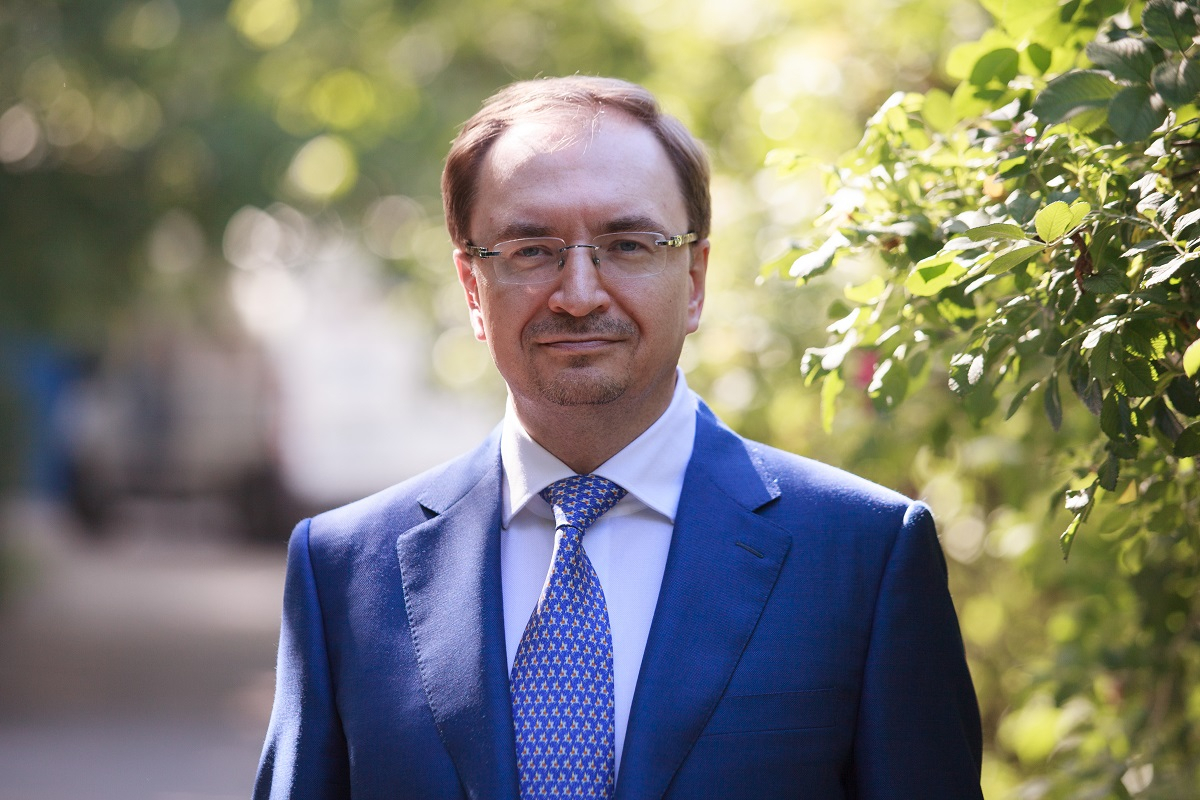Rector of St Petersburg University suggests stimulating horizontal cooperation between Scientific and Educational Centres and clarifying the criteria for evaluating their work

Rector of St Petersburg University Nikolay Kropachev, a Corresponding Member of the Russian Academy of Sciences, has taken part in a meeting of the Council of World-Class Scientific and Educational Centres. The meeting was held at the Coordinating Centre of the Government of Russia and chaired by Dmitry Chernyshenko, Deputy Prime Minister and a member of the Board of Trustees of St Petersburg University.
During the meeting, Dmitry Chernyshenko emphasised that scientific and educational centres solved urgent problems of achieving technological sovereignty. They should therefore achieve particular tangible results that will strengthen the economy of both the individual constituent entities of the Russian Federation and the entire country.
’The rotation of the scientific and educational centres, now enshrined in legislation, will enable us to correctly distribute federal resources for the effective implementation of the instructions of the President of Russia. Decisions are made by the Council collectively, based on performance indicators and expert assessments,’ the Deputy Prime Minister said. ’Let me remind you that more than 3.4 billion roubles were allocated from the budget in 2022 and 2023 to finance world-class scientific and educational centres.’
To assess the effectiveness of the centres, the Ministry of Science and Higher Education of Russia and the Russian Centre for Scientific Information analysed the quantitative and qualitative indicators of their activities for 2022.
Based on the results obtained, the Council of World-Class Scientific and Educational Centres decided to categorise each of them as belonging to one of the three classes. To conduct voting, the meeting participants used the CryptoVeche electronic voting system developed with the support of the Russian Government Office at the Distributed Ledger Technologies Centre of St Petersburg University.
The Distributed Ledger Technologies Centre was established in 2018 at St Petersburg University. It is the leading competence centre of the National Technology Initiative programme for the development of blockchain technology and ecosystem in Russia. Developed in 2020 on the basis of the blockchain, the CryptoVeche system allows online voting, the results of which cannot be faked or modified. Today, it is used by over 100 scientific organisations in Russia.
According to Valery Falkov, Minister of Science and Higher Education of Russia, Deputy Chairman of the Council of World-Class Scientific and Educational centres, the technological projects of such centres influence the socio-economic development of the region.
’Scientific and educational centres are one of the key instruments of state policy. And in order to achieve tangible results, interregional centres need to strengthen their managerial framework. We interviewed more than 500 heads of scientific organisations and universities according to various criteria. We also evaluated all available financial and non-financial methods to support our science and technology policies. It is important to note that the Ministry is closely following the regional agenda. We are grateful to the heads of the regions who consider scientific and educational centres an important element of the regional agenda. Most of the requests submitted today will be taken into account,’ said Valery Falkov.
Rector of St Petersburg University Nikolay Kropachev drew the participants’ attention to the need to stimulate horizontal cooperation between world-class scientific and educational centres. In addition, in his speech, he drew attention to the need to clarify the indicators for evaluating the effectiveness of such centres.
On behalf of Russian President Vladimir Putin, 15 world-class scientific and educational centres have been established in Russia as part of the national project ’Science and Universities’. They are used to: conduct advanced research; develop new competitive technologies and products; and train highly qualified personnel to solve major scientific and technological problems. St Petersburg University takes part in the work of two such centres: ’Engineering of the Future’ and ’Innovative Solutions in the Agro-Industrial Complex’.
He emphasised that the criteria currently used are of a special nature and should not completely replace the assessment of the quality and efficiency of the centres’ participants enshrined in other government decrees. According to him, in future, decisions made based on the results of consideration of reports should be based on an integral assessment that includes all relevant indicators, and not just those directly stipulated by the grant support rules for scientific and educational centres. In particular, such criteria may include indicators stipulated by the rules for monitoring the education system or by a government decree regulating the requirements for core facility centres and unique scientific installations.
’Today, every third activity programme takes into account activities for the creation of core facility centres. So, when evaluating them, we should apply the relevant government decree, which means such indicators as, for example, the ratio of the actual equipment operation time to the maximum possible time, which should not be less than 70%,’ Nikolay Kropachev highlighted.

